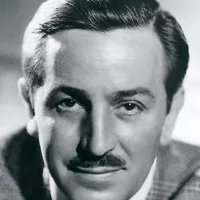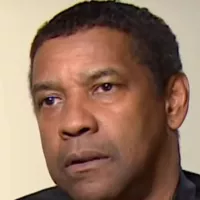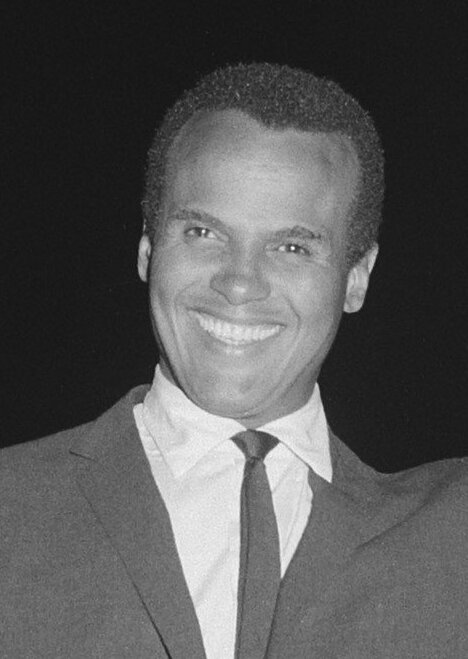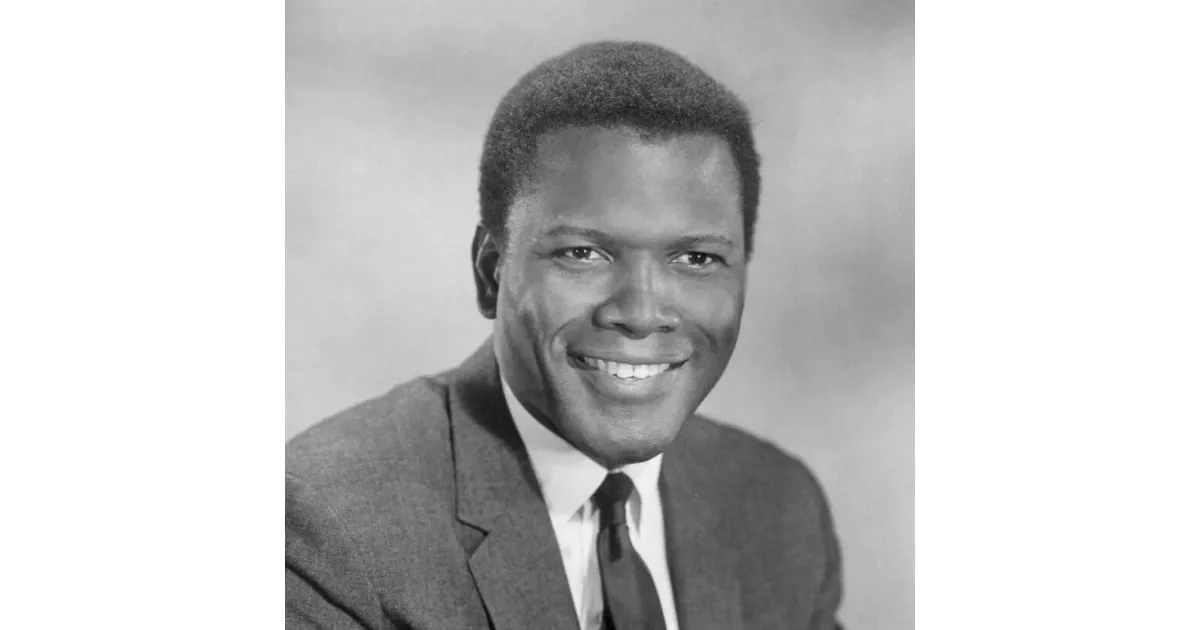How Sidney Poitier built a successful career. Explore key moments that defined the journey.
Sidney Poitier was a trailblazing Bahamian-American actor, director, activist, and diplomat, renowned as the first African-American to win the Academy Award for Best Actor in 1964. His distinguished career garnered numerous accolades, including two Golden Globe Awards, a BAFTA Award, and a Grammy Award. He was recognized by the American Film Institute as one of the greatest screen legends. Poitier's impact extended beyond entertainment, as he served as a significant figure in the fight for civil rights and equality during the Golden Age of Hollywood.
1942: Release of Roxie Hart
In 1942, William Wellman previously directed the famous Roxie Hart, a film that predates Sidney Poitier's association with Wellman.
1947: Founding Member of the Committee for the Negro in the Arts
In 1947, Sidney Poitier was a founding member of the Committee for the Negro in the Arts (CNA).
1947: Release of Magic Town
In 1947, William Wellman previously directed the film Magic Town, a film that predates Sidney Poitier's association with Wellman.
1949: Choice between Stage and Film
In late 1949, Sidney Poitier faced a decision between leading roles on stage and an offer to work in the film No Way Out.
1950: Performance in No Way Out
In 1950, Sidney Poitier's performance in No Way Out garnered attention and led to more prominent roles.
1951: Filming Cry, the Beloved Country in South Africa
In 1951, Sidney Poitier traveled to South Africa with Canada Lee to star in the film version of Cry, the Beloved Country.
1952: Narrator for Negro History Festival
In 1952, Sidney Poitier served as one of the narrators in a pageant written by Alice Childress and Lorraine Hansberry for the Negro History Festival.
1955: Breakthrough Role in Blackboard Jungle
In 1955, Sidney Poitier landed his breakthrough film role as a high school student in the film Blackboard Jungle.
1955: Role in Blackboard Jungle
In 1955, Sidney Poitier played Gregory W. Miller in Blackboard Jungle, continuing his distinction in film roles.
1956: Working on Good-bye, My Lady
In 1956, Sidney Poitier enjoyed working with director William Wellman on Good-bye, My Lady.
1957: Performance in Edge of the City
In 1957, Sidney Poitier's performance in Edge of the City was critically acclaimed and propelled him towards stardom.
1958: First Black Male Nominee for Academy Award
In 1958, Sidney Poitier became the first Black male actor to be nominated for an Academy Award.
1958: Academy Award Nomination for The Defiant Ones
In 1958, Sidney Poitier received an Academy Award nomination for Best Actor for The Defiant Ones, marking the first time an African American was nominated in a lead role. Poitier also won the Silver Bear for Best Actor for that performance.
1958: Starring in The Defiant Ones
In 1958, Sidney Poitier starred alongside Tony Curtis in The Defiant Ones, receiving critical acclaim and an Academy Award nomination, marking him as the first African-American actor nominated in a lead role.
1959: A Raisin in the Sun and Porgy and Bess
In 1959, Sidney Poitier acted in the first production of A Raisin in the Sun on Broadway and starred in the film adaptation of Porgy and Bess.
1959: Starring in Porgy and Bess
In 1959, Sidney Poitier starred in Porgy and Bess, continuing his trend of playing strong leading African American male roles.
1961: Starring in A Raisin in the Sun
In 1961, Sidney Poitier starred in A Raisin in the Sun, portraying another strong leading African American male role.
1961: Starred in film adaptation of A Raisin in the Sun and Paris Blues
In 1961, Sidney Poitier starred in the film adaptation of A Raisin in the Sun and Paris Blues alongside Paul Newman, Joanne Woodward, Louis Armstrong, and Diahann Carroll. For A Raisin in the Sun, Poitier received another Golden Globe Award nomination.
1963: Won Best Actor Oscar
In 1963, Sidney Poitier became the first Black actor to win the Academy Award for Best Actor, for his role in "Lilies of the Field".
1963: Leading Role in Lilies of the Field
In 1963, Sidney Poitier played the leading role in the film "Lilies of the Field", a role that would earn him significant recognition and awards.
1963: Won Academy Award for Lilies of the Field
In 1963, Sidney Poitier starred in Lilies of the Field. For this role, he won the Academy Award for Best Actor and became the first African-American to win the award in a leading role.
1964: Academy Award Win
In 1964, Sidney Poitier became the first African-American actor and first Bahamian to win the Academy Award for Best Actor.
1964: Poitier Meets Plato album
In 1964, Sidney Poitier recorded an album with the composer Fred Katz called Poitier Meets Plato, in which Poitier recites passages from Plato's writings.
1964: Academy Award and Golden Globe Win for Lilies of the Field
In 1964, Sidney Poitier won the Academy Award and the Golden Globe for Best Actor for Lilies of the Field (1963).
1965: Roles in various films
In 1965, Sidney Poitier performed in The Bedford Incident, The Greatest Story Ever Told, and A Patch of Blue.
1965: Starring in A Patch of Blue
In 1965, Sidney Poitier starred in A Patch of Blue, further solidifying his presence in prominent roles.
1966: Turned down Othello role
In 1966, Sidney Poitier turned down an opportunity to play the lead in an NBC television production of Othello, due to concerns about being typecast and wanting to set a positive example.
1967: Starring in films tackling race relations
In 1967, Sidney Poitier acted in three films - To Sir, with Love; Guess Who's Coming to Dinner, and In the Heat of the Night - that addressed race and race relations.
1967: Starring in In the Heat of the Night
In 1967, Sidney Poitier played Virgil Tibbs in In the Heat of the Night, receiving critical acclaim and Golden Globe and British Academy Film Award nominations.
1967: Commercial peak of career
In 1967, Sidney Poitier reached the commercial peak of his career, starring in three popular films: To Sir, with Love, In the Heat of the Night, and Guess Who's Coming to Dinner.
1969: Starred in The Lost Man
In 1969, Sidney Poitier starred in "The Lost Man" with Joanna Shimkus.
1970: Sequel: They Call Me Mister Tibbs!
In 1970, Sidney Poitier's character Virgil Tibbs, from In the Heat of the Night, was the subject of the sequel They Call Me Mister Tibbs!.
1971: Taking the Helm on Buck and the Preacher
In 1971, Sidney Poitier found himself taking the directorial helm from Joseph Sargent on Buck and the Preacher, inspired by William Wellman's approach.
1971: Sequel: The Organization
In 1971, Sidney Poitier's character Virgil Tibbs, from In the Heat of the Night, was the subject of the sequel The Organization.
1972: Directorial Debut with Buck and the Preacher
In 1972, Sidney Poitier made his directorial debut with Buck and the Preacher.
1972: Directed Buck and the Preacher
In 1972, Sidney Poitier made his feature film directorial debut with the Western film Buck and the Preacher, also starring in the film.
1973: Directing A Warm December
In 1973, Sidney Poitier directed his second feature film, A Warm December.
1974: Directing Uptown Saturday Night
In 1974, Sidney Poitier directed the film Uptown Saturday Night.
1974: Uptown Saturday Night Release
In 1974, Sidney Poitier starred in and directed the financially successful comedy film "Uptown Saturday Night" alongside Bill Cosby and Harry Belafonte.
1975: Let's Do It Again Release
In 1975, Sidney Poitier starred in and directed the financially successful comedy film "Let's Do It Again" alongside Bill Cosby.
1977: A Piece of the Action Release
In 1977, Sidney Poitier starred in and directed the financially successful comedy film "A Piece of the Action" alongside Bill Cosby.
1980: Directing Stir Crazy
In 1980, Sidney Poitier directed the film Stir Crazy.
1980: Stir Crazy Release
In 1980, Sidney Poitier directed the successful comedy film "Stir Crazy", starring Richard Pryor and Gene Wilder.
1985: Directed Fast Forward
In 1985, Sidney Poitier directed the film "Fast Forward".
1988: Starred in Shoot to Kill
In 1988, Sidney Poitier starred in the film "Shoot to Kill" with Tom Berenger.
1990: Directed Ghost Dad
In 1990, Sidney Poitier reunited with Bill Cosby to direct him in the family comedy "Ghost Dad".
1991: Starred in Separate but Equal
In 1991, Sidney Poitier starred in the television movie "Separate but Equal", receiving an Emmy nomination for his work.
1992: Starred in Sneakers
In 1992, Sidney Poitier starred in the film "Sneakers" alongside Robert Redford and Dan Aykroyd.
1995: Joined Disney's Board of Directors
In 1995, Sidney Poitier became a member of the board of directors of The Walt Disney Company.
1996: Starred in To Sir, with Love II
In 1996, Sidney Poitier starred in the television movie "To Sir, with Love II".
April 1997: Appointed Ambassador to Japan
In April 1997, Sidney Poitier was appointed ambassador from the Bahamas to Japan.
1997: Bahamian Ambassador to Japan
In 1997, Sidney Poitier became the Bahamian Ambassador to Japan, a role he held until 2007.
1997: Co-starred in The Jackal
In 1997, Sidney Poitier co-starred in the film "The Jackal" with Richard Gere and Bruce Willis.
1997: Starred in Mandela and de Klerk
In 1997, Sidney Poitier starred in the television movie "Mandela and de Klerk", receiving an Emmy nomination for his work.
1999: Starred in The Simple Life of Noah Dearborn
In 1999, Sidney Poitier starred in the television movie "The Simple Life of Noah Dearborn".
2002: Appointed Ambassador to UNESCO
In 2002, Sidney Poitier was concurrently appointed the ambassador of the Bahamas to UNESCO.
2003: End of term at Disney
Sidney Poitier finished his term at The Walt Disney Company's board of directors in 2003.
2007: End of Ambassadorship
In 2007, Sidney Poitier concluded his service as the Bahamian Ambassador to Japan, a role he began in 1997.
2013: Authored Montaro Caine
In 2013, Sidney Poitier wrote the novel "Montaro Caine".
Mentioned in this timeline

Barack Obama the th U S President - was the...

Elizabeth II reigned as Queen of the United Kingdom and...

Angelina Jolie is a prominent American actress filmmaker and humanitarian...

Walter Elias Disney was a highly influential American animator film...

Denzel Washington is a highly acclaimed American actor producer and...

Harry Belafonte was a prominent American singer actor and civil...
Trending

48 minutes ago Paris Jackson and Mom Debbie Rowe Reunite: Rare Photos Shared Online

48 minutes ago Trump Considers Ted Cruz for Supreme Court Nomination: Potential Pick Discussed.

48 minutes ago Dillon Thieneman: From Underrecruited to NFL Draft Prospect, Possible Lions Fix

49 minutes ago Charles Barkley Blames Steph Curry for Ruining NBA; Tanking Solutions Proposed.

2 hours ago Dennis Quaid expresses admiration for Donald Trump, discusses political climate in United States.

2 hours ago Hillary Clinton Addresses Ghislaine Maxwell's Presence at Chelsea's Wedding Amidst Controversy.
Popular

Jesse Jackson is an American civil rights activist politician and...

Susan Rice is an American diplomat and public official prominent...

XXXTentacion born Jahseh Dwayne Ricardo Onfroy was a controversial yet...

Michael Joseph Jackson the King of Pop was a highly...

Barack Obama the th U S President - was the...

Hillary Diane Rodham Clinton is a prominent American politician lawyer...
